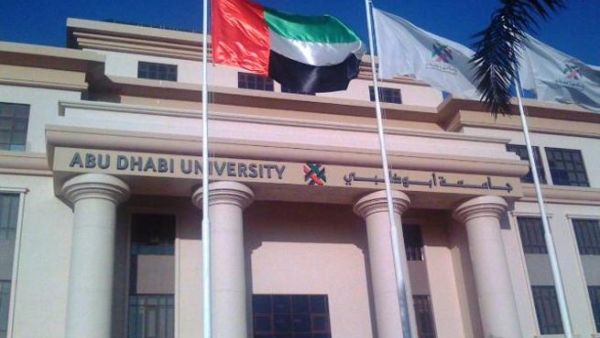Experts discuss transport and customs strategies at 2nd Global Logistics Forum

Experts and decision makers discussed key issues facing the logistics industry globally and in the Middle East yesterday (Monday, 21st November) at the opening of the 2nd Annual Global Logistics Forum held at Park Rotana Hotel in Abu Dhabi. Organized by Abu Dhabi University, the Centre of Excellence for Logistics and Supply Chain Management, AIM Events, and TU Berlin with “Abu Dhabi Ports Company” as the platinum sponsor, the 3-day forum entitled “Developing a Unified Logistics Environment that Fosters Growth” hosted decision makers from government organizations, customs and transport regulators, heads and directors of the corporate supply chains and the logistics industry, air cargo, shipping and freight operators.
Giving the Welcome Speech, Dr. Nabil Ibrahim Chancellor of Abu Dhabi University said: “The forum is a unique opportunity for academic, government and industry leaders to share their knowledge and experience of global issues of logistics and transportation, as well as discuss transport and custom strategies and regulations updates. Transport and logistics industry comprises a large sector of the world economy, accounting for total revenues of $3.4 trillion in 2006 with estimated annual growth of 4.5%”.
He explained that logistics and transportation offer the UAE an opportunity to leverage its strengths while diversifying its economy and building global competitiveness. Strategically located at the southern eastern tip of the Gulf, the UAE is at the cross roads between Europe and Southeast Asia. Its 700 km of coastline and strategic location have helped establish UAE as an international aviation and maritime transport hub. World class infrastructure including transportation energy communications and tourism represents a strong asset and plays an important role in encouraging companies to locate in UAE. Today the transport and logistics sector represents an important part in the UAE economy comprising 10.4% of non oil GDP.
In the forum’s keynote address, Mohamed Al Otaiba, Director of Freight at Abu Dhabi Department of Transport stressed the importance of the availability of efficient, safe and environmentally sustainable freight system, as it is a key enabler of socio economic development in any society. He added: “We are certain that without applying sound logistics principles, we will not realize our full economic potential, we will fall behind in competing to attract international investment and trade, our costs of transport and distribution will rise, and we will fail to serve the needs of our people and business community”.
Al Otaiba pointed out that there is no doubt that in the past thirty five years the UAE in general and the capital in particular have achieved remarkable rates of economic growth and diversification, but Abu Dhabi’s freight sector still faces a number of strategic challenges such as integrated multi-modal freight transport systems that can efficiently support and connect local, regional and global markets. There is also a need to develop comprehensive regulatory regime.
He explained that at over 240 billion Dirhams, the UAE’s international trade in goods (excluding oil) now accounts for over 30% of GDP. Even between 2007 and 2008, the UAE’S trade in merchandise grew at a healthy rate of 20 percent per annum. “Logistics brings together many separate disciplines and activities. It is no longer enough to build roads, ports and airports to serve the needs of users. The whole business, regulatory and investment climate must be designed to encourage innovation and competitiveness, and the Global Logistics Forum brings together all the various practitioners in the logistics sphere to discuss these issues”, concluded Al Otaiba.
Other expert advice on the subject was presented by Capt. Mohamed Al Shamisi, Vice President – Ports Unit, Abu Dhabi Ports Company. In his presentation, Capt. Al Shamsi discussed facilitating the growth of logistics in Abu Dhabi, ADPC’s commitment to aligning its goals with Abu Dhabi’s Economic Vision 2030 as well as participating in building modern infrastructure, improving efficiency of regulations and licensing operations, adopting quality standards and best practices, enhancing customer experiences, and supporting regional supply chains and logistics networks.
The forum also hosted other contributors including Khalid Al Bustani, Acting Director General, UAE Federal Customs Authority, Marwan Gharaibeh, Director Customs Support Services, Abu Dhabi Customs, Shashi Shekhar, Founder and Group President, Supply Chain and Logistics Group (SCLG), Dr Nadhem Bin Taher, Acting Executive Director of the Land Transport Sector, Director of Roads and Freight at the National Transport Authority (NTA), John Lesniewski, KAM Program and Sales Senior Manager at Etihad Rail, and Brent Melvin General Manager, Al-Futtaim Logistics. In addition to two panel sessions that discussed techniques of optimizing the movement of freight across the region by aligning transport regulations, and creating an integrated customs environment to optimize logistics.
Background Information
Abu Dhabi University
The dream began with the Charter of Abu Dhabi University in the year 2000, After three years of planning, the university opened its doors in September 2003, to an entering class of 1,000 students on its two campuses in Abu Dhabi and Al Ain. Unlike other colleges and universities in the UAE, ADU undertook the measures necessary to ensure that all of the degree programs it would offer had secured accreditation from the Ministry of Higher Education and Scientific Research in advance of any students enrolling in them.
ADU offers a range of undergraduate and postgraduate degrees based upon the American model of higher education.






